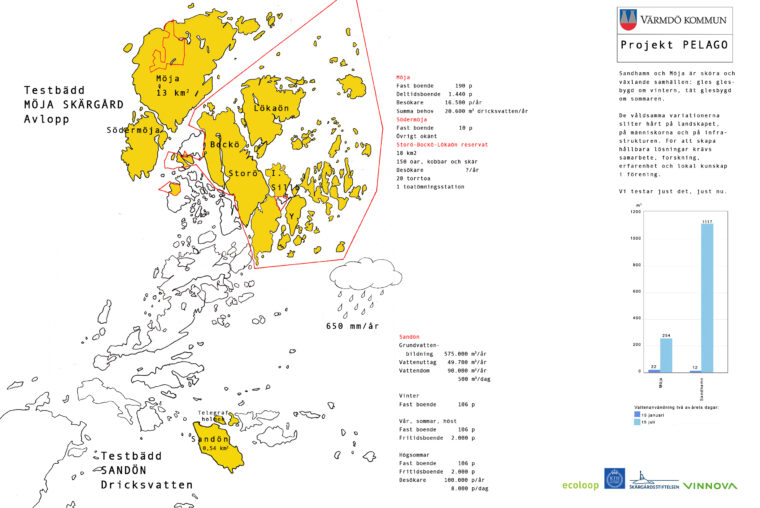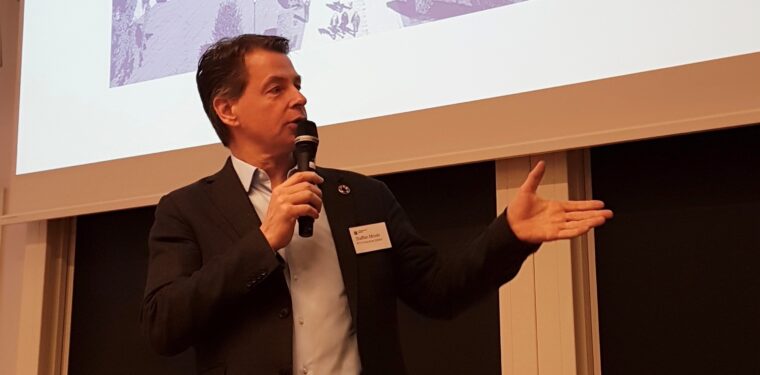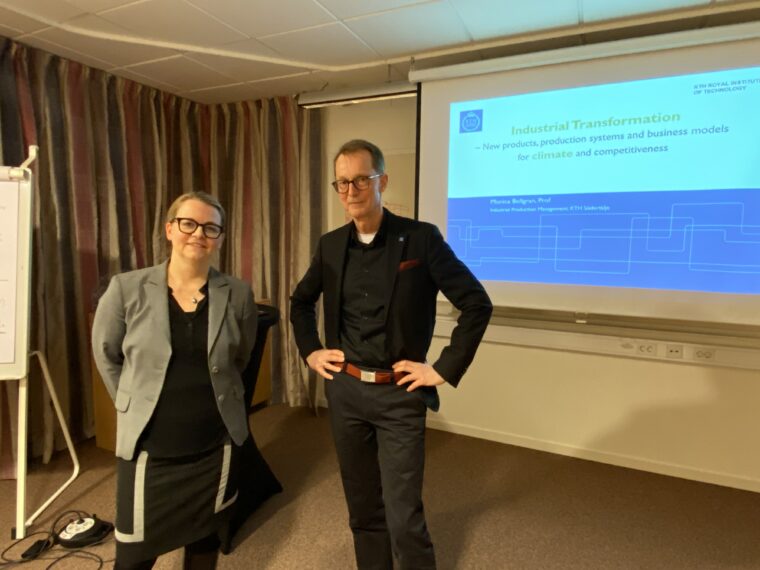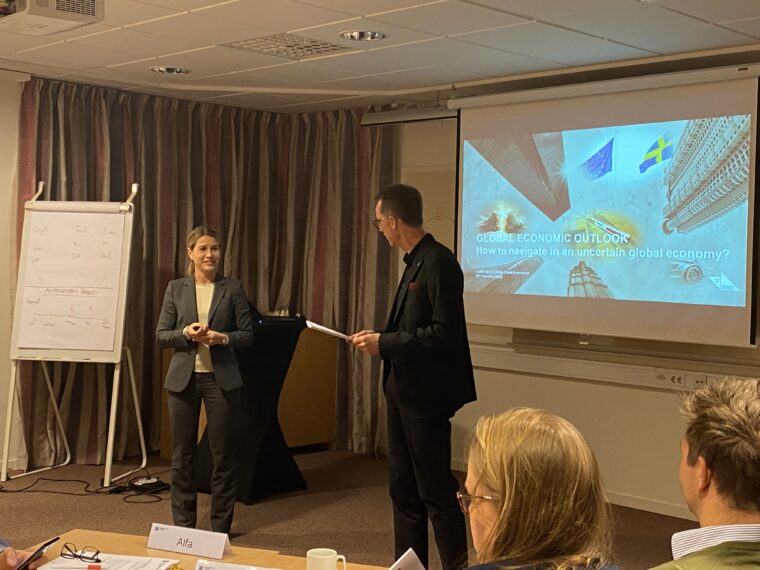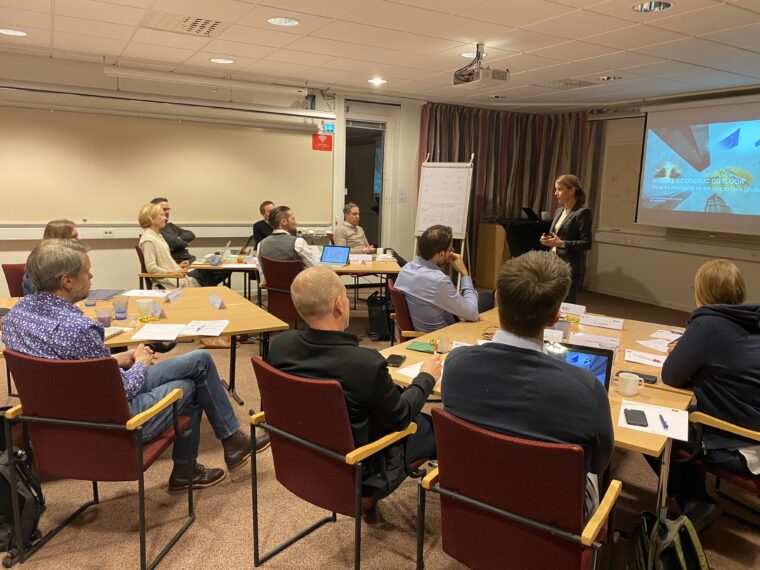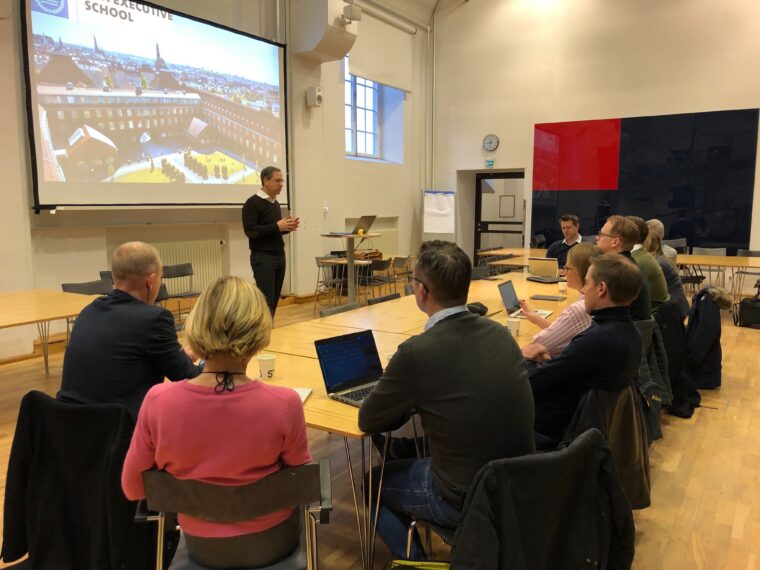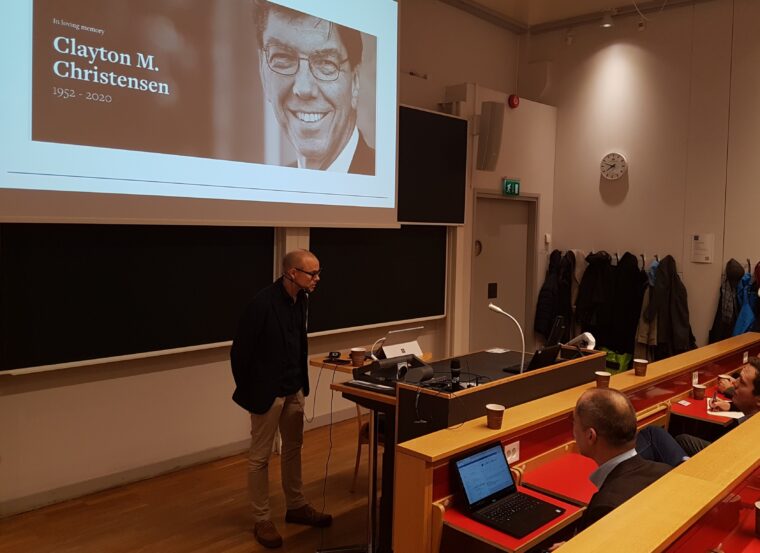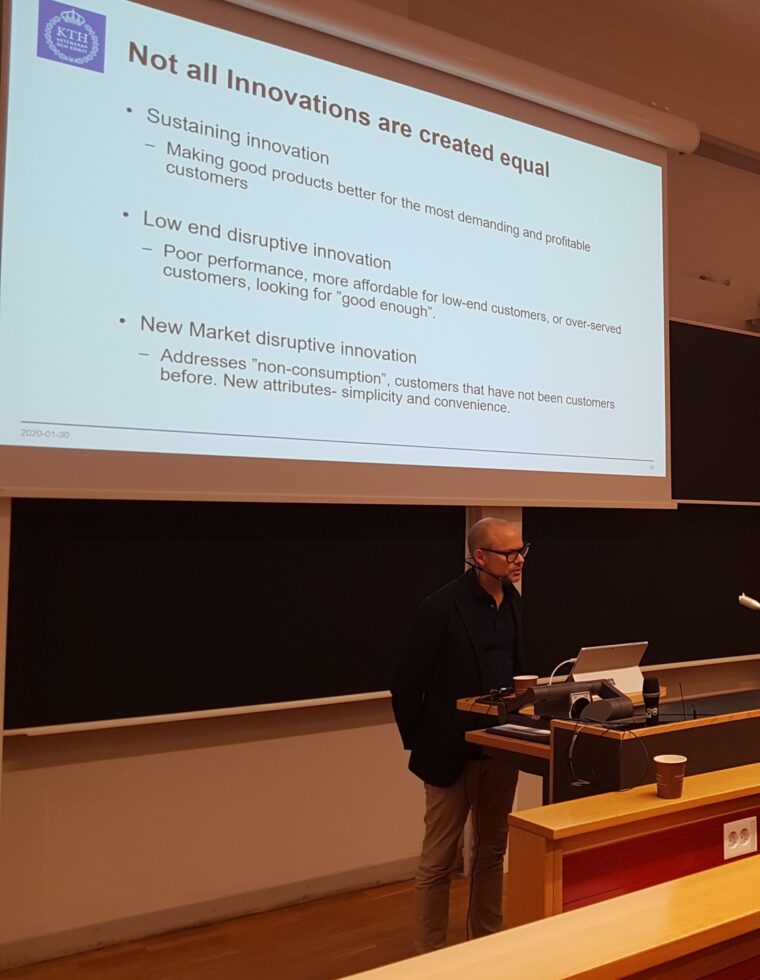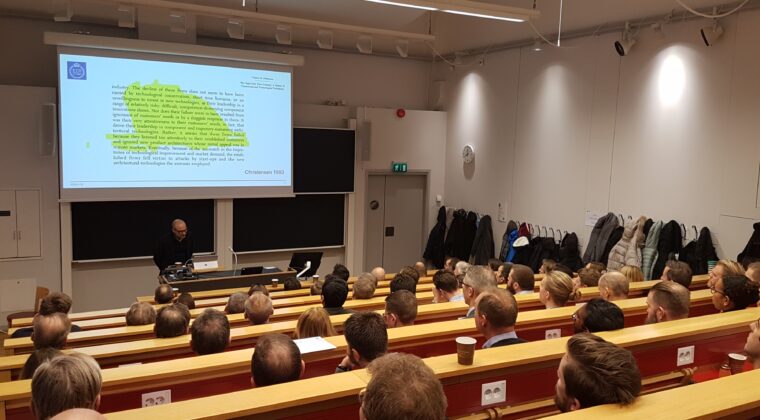I samband med Coronaviruset uppmanar myndigheter att de som kan arbeta hemifrån ska göra det. Här är fem saker Kristina Palm anser att chefer och medarbetare bör känna till när vi nu jobbar hemma. Kristina har varit knuten till KTH Executive School och leder forskningsstudien “Vägar till ett hållbart digitalt arbetsliv”.
Olika preferenser
Att arbeta hemifrån är något som uppskattas av många, men också ogillas av andra. Att vi faktiskt har olika preferenser om hur vi vill integrera arbete och övrigt liv är en viktig kunskap för chefer och medarbetare.
Det som händer när vi arbetar hemma är att gränsen mellan arbete och övrigt liv suddas ut. De som mår bra av att ha en tydlig gräns kan behöva skapa nya gränser för att hantera vardagen.
Att avsätta ett rum eller en plats i hemmet för arbete är ett tydligt sätt att upprätta en gräns. Ett annat sätt är att avsätta tid för arbete.
Kristina lyfter också fram vikten av att avsätta också ett mentalt utrymme för arbete, dvs. skapa möjligheten att fokusera arbetet och inte andra saker som lätt kan pocka på i hemmet. Hon tycker vi ska använda Pomodore-tekniken, dvs ställa en timer och under den tiden arbeta koncentrerat. Tankar som far igenom huvudet som handlar om annat än arbete får vi då slå bort. Ett sätt kan vara att skriva ned dem på papper. Det kan vara ”finns det något gott att äta i kylen” eller ”jag kanske ska dammsuga under soffan”.
Kristinas förslag är att vi arbetar i pass om 45 min och sedan tar 5-15 min ordentlig paus. Under pausen är det klokt att röra på sig. Ställ också timer för pausen så att den inte drar ut i tid.

Samarbeten
De flesta arbeten bygger på samarbete. Hur samarbetet ska fungera nu när man inte ses fysiskt är något som vi behöver prata om. Några frågor att diskutera är: Ska man ha fasta tider eller möten vid behov? Vid vilka tillfällen har man möten på en digital plattform som Zoom, Teams eller Skype? Och vid vilka tillfällen och frågor räcker det med sms eller mejl?
Det finns några speciella saker att tänka på vid virtuella möten, men i första hand så gäller samma saker som vanliga möten. Ha ett tydligt syfte, tydlig agenda och se till att alla kommer till tals. Kalla också bara de som verkligen behövs på mötet. Dock behöver den som leder mötet vara ännu lite mer förberedd, ännu lite mer tydlig om vad syftet är och ännu mer anstränga sig att alla kommer till tals.
Väl fungerande teknik är också viktigt, byt ut videokonferens till telefonkonferens om tekniken strular. En fördel just nu är faktiskt att alla är på distans vilket gör mötet mer effektivt än om några mötesdeltagare sitter fysiskt i samma rum
Uppföljning
Olika människor har olika behov av uppföljning och tydlighet från sin chef. Det är en fråga man som chef behöver prata med sina medarbetare om. Kristina tror att chefer inte ska vara oroliga för att människor plötsligt börjar maska i arbetet. Gör de i vanliga fall ett bra arbete så kommer de göra det även nu efter bästa förmåga med de förutsättningar som finns.
Sociala relationer
Om uppmaningen att arbeta hemma blir under längre tid så kommer ju även det sociala livet att minska. Arbetsplatsen är ofta en källa till goda sociala relationer och här kan man behöva fundera på hur man kan ta en social fika på distans. Koka en kopp kaffe, logga in på en virtuell plattform och prata om hur vi mår och hur vi har det.
Ergonomi och pauser
Den ordinarie arbetsplatsen har oftast en god ergonomisk miljö med höj- och sänkbart bord, bra ergonomisk stol och bra belysning. Hemarbetsplatsen man ordnar har säkert inte dessa finesser – var noga med pauser!
Kristina Palm är docent och lektor i industriell arbetsvetenskap vid KTH, forskare vid Karolinska Institutet och Karlstads Universitet.
Källa: Kristina Palm, Att jobba hemma i Coronatider (2020)


